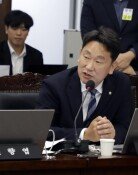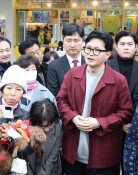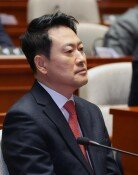Revised Taxation Bill Puts Heavier Burden on General Public
Revised Taxation Bill Puts Heavier Burden on General Public
Posted August. 29, 2005 03:07,
Koreans are unhappy about the governments recent taxation revision bill mandating increases in soju and liquefied natural gas taxes, and a decrease in the credit card income tax deduction rate, saying working Koreans are forced to bear the brunt of the changes.
On August 28, 300 to 400 postings that complained about the taxation revision bill released on August 26 appeared on Internet portal sites including Naver and Daum.
It will not be easy for the bill to pass the National Assembly in the face of a growing criticism from the ruling and opposition parties.
A blogger whose ID was dragon 2416 said, Its too much for ordinary Koreans. With the same amount of salary, we should not bear more financial burdens due to growing taxes and other quasi-taxes. The government should not expect support from the public.
Last year, the government collected fewer taxes than its goal, but it levied 18.9 percent or some 1.562 trillion won more income taxes on corporate employees than its targeted amount. This may generate public outcry that the government puts too much burden on employees whose income is easily exposed.
The Ministry of Finance and Economy says, for its part, that considering the 4.3 trillion won shortfall in taxes last year and the recession Korea is undergoing, the government has no other option but to raise taxes.
Criticism is coming from the ruling party as well as the opposition parties. The Grand National Party criticized the governments effort, saying, The government is passing the burden of making up for shortfalls in tax revenue onto the general public, especially middle-income families. The party will block the passage of the bill in plenary session in the National Assembly.
Moon Seok-ho, leader of a policy coordination committee of the ruling Uri Party, expressed the possibility of revising the taxation rates after finishing a government-ruling party consultation on August 26, saying, Increased taxes on soju and LNG will put a heavy burden on the general public, which calls for a comprehensive discussion in the National Assembly.
Heo Chan-gook, director of the economic research department of the Korea Economic Research Institute, pointed out that the government goes as far as to raise taxes ,even knowing that an economic revival will bring in more taxes, which indicates the governments loss of confidence. During recessions, it is more effective for the government to reduce government spending, rather than raise taxes, added Heo.
Joong-Hyun Park Sang-Soo Kim sanjuck@donga.com ssoo@donga.com







